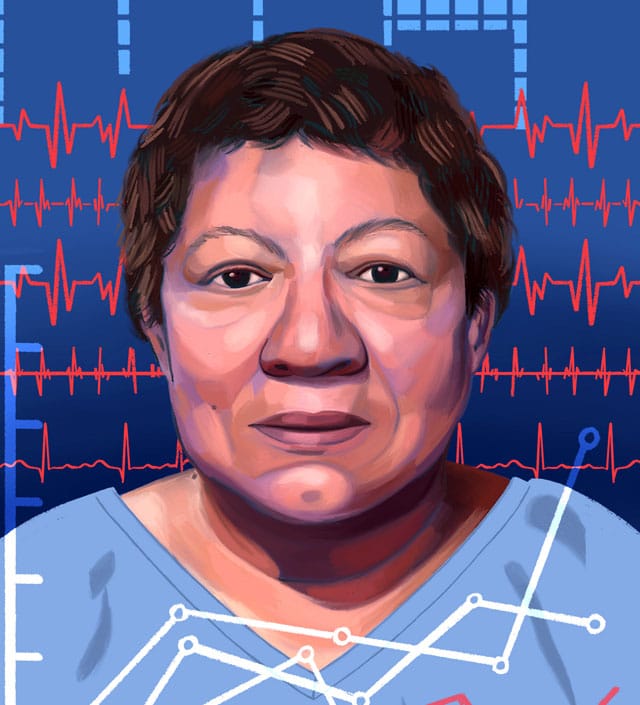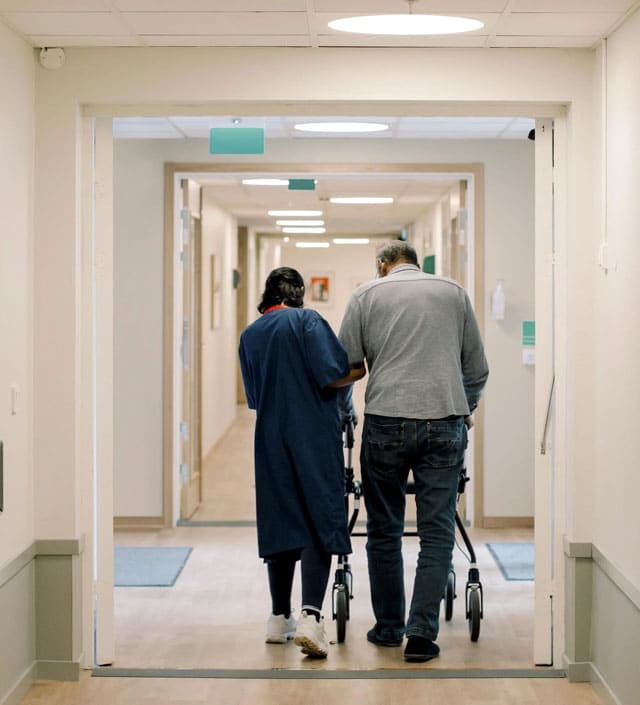Anxiety is the most common psychological disorder affecting adults in the U.S. In older people, it’s associated with considerable distress as well as ill health, diminished quality of life, and elevated rates of disability.
Yet, when the U.S. Preventive Services Task Force, an independent, influential panel of experts, suggested last year that adults be screened for anxiety, it left out one group — people 65 and older.
The major reason the task force cited in draft recommendations issued in September: “the current evidence is insufficient to assess the balance of benefits and harms of screening for anxiety” in all older adults. (Final recommendations are expected later this year.)
The task force noted that questionnaires used to screen for anxiety may be unreliable for older adults. Screening entails evaluating people who don’t have obvious symptoms of worrisome medical or psychological conditions.
“We recognize that many older adults experience mental health conditions like anxiety” and “we are calling urgently for more research,” said Lori Pbert, associate chief of the preventive and behavioral medicine division at the University of Massachusetts Chan Medical School and a former task force member who worked on the anxiety recommendations.
This “we don’t know enough yet” stance doesn’t sit well with some experts who study and treat seniors with anxiety. Dr. Carmen Andreescu, an associate professor of psychiatry at the University of Pittsburgh, called the task force’s position “baffling” because “it’s well established that anxiety isn’t uncommon in older adults and effective treatments exist.”
“I cannot think of any danger in identifying anxiety in older adults, especially because doing so has no harm and we can do things to reduce it,” said Dr. Helen Lavretsky, a psychology professor at UCLA.
In a recent editorial in JAMA Psychiatry, Andreescu and Lavretsky noted that only about one-third of seniors with generalized anxiety disorder — intense, persistent worry about everyday matters — receive treatment. That’s concerning, they said, considering evidence of links between anxiety and stroke, heart failure, coronary artery disease, autoimmune illness, and neurodegenerative disorders such as dementia.
Other forms of anxiety commonly undetected and untreated in seniors include phobias (like a fear of dogs), obsessive-compulsive disorder, panic disorder, social anxiety disorder (a fear of being assessed and judged by others), and post-traumatic stress disorder.
The smoldering disagreement over screening calls attention to the significance of anxiety in later life — a concern heightened during the covid-19 pandemic, which magnified stress and worry among seniors. Here’s what you should know.
Anxiety is common
According to a book chapter published in 2020, authored by Andreescu and a colleague, up to 15% of people 65 and older who live outside nursing homes or other facilities have a diagnosable anxiety condition.
As many as half have symptoms of anxiety — irritability, worry, restlessness, decreased concentration, sleep changes, fatigue, avoidant behaviors — that can be distressing but don’t justify a diagnosis, the study noted.
Most seniors with anxiety have struggled with this condition since earlier in life, but the way it manifests may change over time. Specifically, older adults tend to be more anxious about issues such as illness, the loss of family and friends, retirement, and cognitive declines, experts said. Only a small fraction develop anxiety after turning 65.
Anxiety can be difficult to identify in older adults
Older adults often minimize symptoms of anxiety, thinking “this is what getting older is like” rather than “this is a problem that I should do something about,” Andreescu said.
Also, seniors are more likely than younger adults to report “somatic” complaints — physical symptoms such as dizziness, fatigue, headaches, chest pain, shortness of breath, and gastrointestinal problems — that can be difficult to distinguish from underlying medical conditions, according to Gretchen Brenes, a professor of gerontology and geriatric medicine at Wake Forest University School of Medicine.
Some types of anxiety or anxious behaviors — notably, hoarding and fear of falling — are much more common in older adults, but questionnaires meant to identify anxiety don’t typically ask about those issues, said Dr. Jordan Karp, chair of psychiatry at the University of Arizona College of Medicine in Tucson.
When older adults voice concerns, medical providers too often dismiss them as normal, given the challenges of aging, said Dr. Eric Lenze, head of psychiatry at Washington University School of Medicine in St. Louis and the third author of the recent JAMA Psychiatry editorial.
Simple questions can help identify whether an older adult needs to be evaluated for anxiety, he and other experts suggested: Do you have recurrent worries that are hard to control? Are you having trouble sleeping? Have you been feeling more irritable, stressed, or nervous? Are you having trouble with concentration or thinking? Are you avoiding things you normally like to do because you’re wrapped up in your worries?
Stephen Snyder, 67, who lives in Zelienople, Pennsylvania, and was diagnosed with generalized anxiety disorder in March 2019, would answer “yes” to many of these queries. “I’m a Type A personality and I worry a lot about a lot of things — my family, my finances, the future,” he told me. “Also, I’ve tended to dwell on things that happened in the past and get all worked up.”
Treatments are effective
Psychotherapy — particularly cognitive behavioral therapy, which helps people address persistent negative thoughts — is generally considered the first line of anxiety treatment in older adults. In an evidence review for the task force, researchers noted that this type of therapy helps reduce anxiety in seniors seen in primary care settings.
Also recommended, Lenze noted, is relaxation therapy, which can involve deep breathing exercises, massage or music therapy, yoga, and progressive muscle relaxation.
Because mental health practitioners, especially those who specialize in seniors’ mental health, are extremely difficult to find, primary care physicians often recommend medications to ease anxiety. Two categories of drugs — antidepressants known as SSRIs (selective serotonin reuptake inhibitors) and SNRIs (serotonin-norepinephrine reuptake inhibitors) — are typically prescribed, and both appear to help to older adults, experts said.
Frequently prescribed to older adults, but to be avoided by them, are benzodiazepines, a class of sedating medications such as Valium, Ativan, Xanax, and Klonopin. The American Geriatrics Society has warned medical providers not to use these in older adults, except when other therapies have failed, because they are addictive and significantly increase the risk of hip fractures, falls and other accidents, and short-term cognitive impairments.
KHN (Kaiser Health News) is a national newsroom that produces in-depth journalism about health issues. Together with Policy Analysis and Polling, KHN is one of the three major operating programs at KFF (Kaiser Family Foundation). KFF is an endowed nonprofit organization providing information on health issues to the nation.







